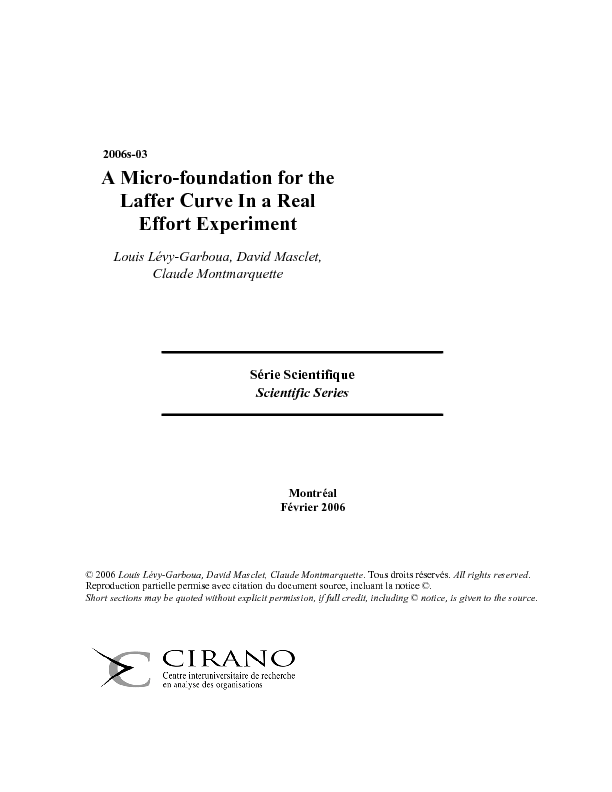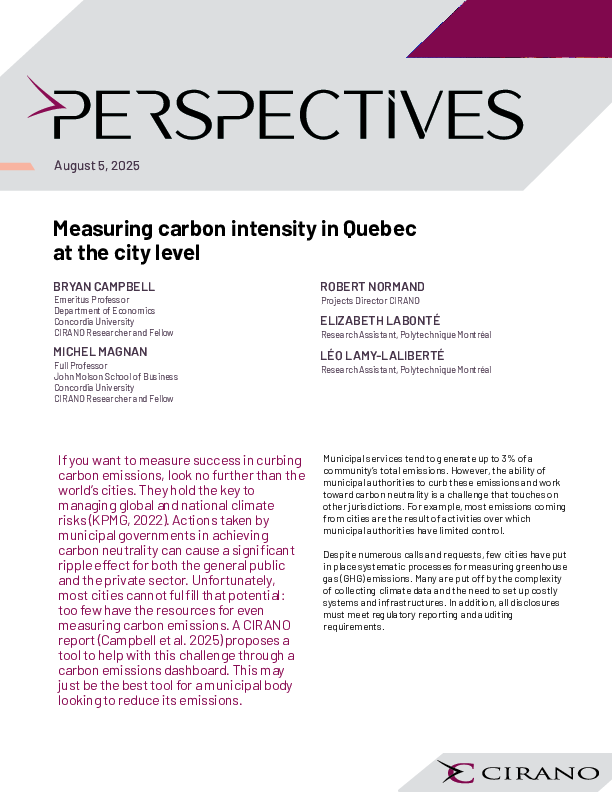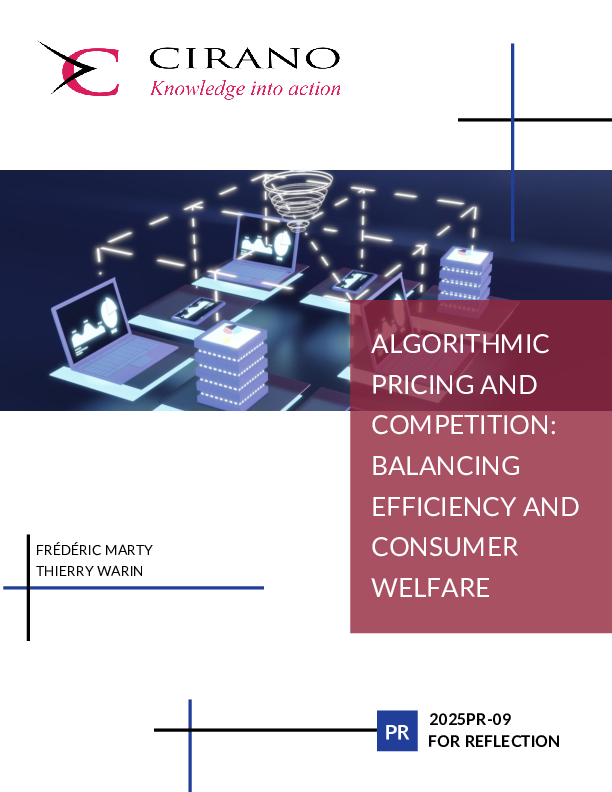A Micro-foundation for the Laffer Curve In a Real Effort Experiment
A conjecture of Laffer, which had considerable influence on fiscal doctrine, is that tax revenues of a Leviathan state eventually decrease when the tax rate exceeds a threshold value. We conduct a real effort experiment, in which a worker is matched with a non-working partner, to elicit the conditions under which a Laffer curve can be observed. We ran four different treatments by manipulating work opportunities and the power to tax. In the endogenous treatment, the non-working partner chooses a tax rate among the set of possibilities and receives the revenue generated by her choice and the worker's effort response to this tax rate. In the exogenous treatment, the tax rate is randomly selected by the computer and the non-working partner merely receives the revenue from taxes. The Laffer curve phenomenon cannot be observed in the exogenous treatments, but arises in endogenous treatments. Tax revenues are then maximized at a 50% tax rate. We demonstrate that an efficiency tax model (with or without inequity aversion) falls short of predicting our experimental Laffer curve but an alternative model of social preferences provides a micro-foundation for the latter. This new model endogenously generates a social norm of fair taxation at a 50% tax rate under asymmetric information about workers' type. Taxpayers manage to enforce this norm by working less whenever it has been violated but do not systematically reward kind tax setters. Workers who maximize their expected wealth adjust work to the tax rate equitably so that tax revenues remain at a fair level. Workers who respond affectively to norm violations want to hurt, and even refuse to work, so that tax revenues are cut down. Workers endowed with higher work opportunities tend to respond more emotionally to unfair taxation in our experiment, which is consistent with the observed Laffer curve and with the history of tax revolts.
[ - ]




